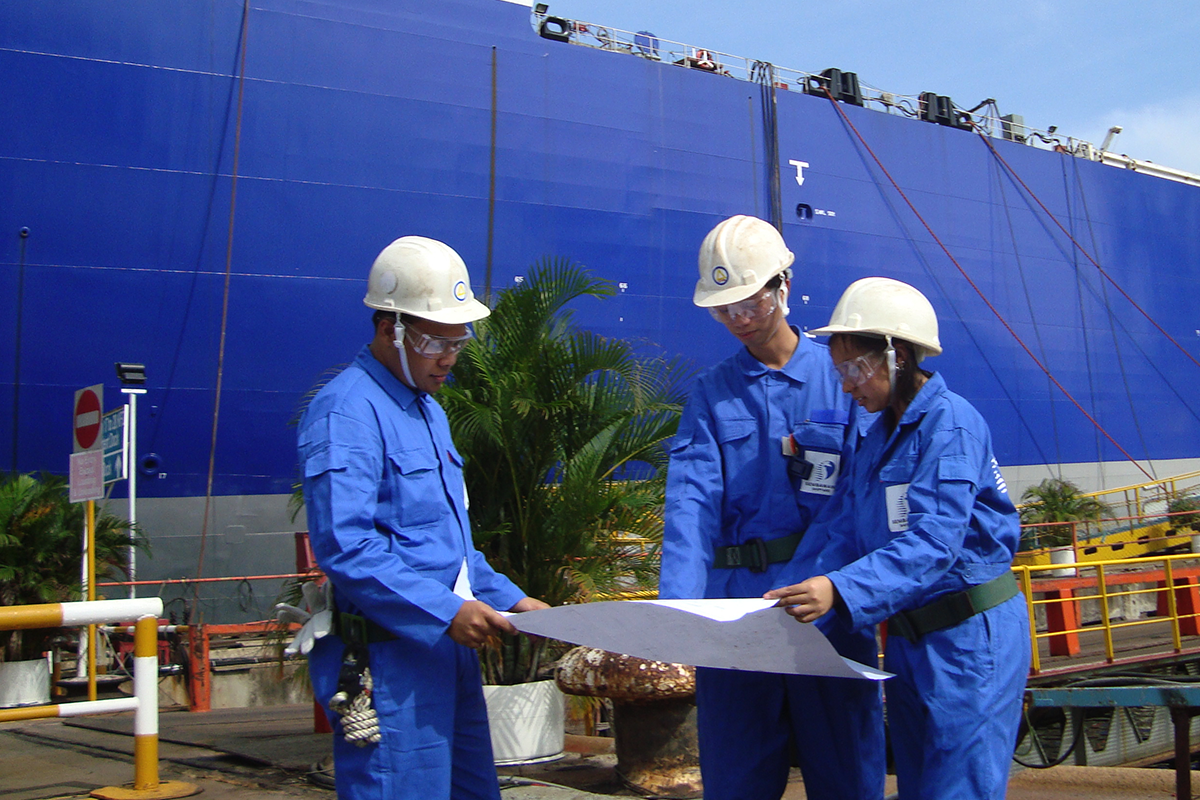Marine engineering involves all engineering aspects of ships and maritime operations. Professionals in this field ensure that vessels are designed and operate safely while remaining compliant with international maritime regulations. Some key responsibilities of marine engineers include maintaining propulsion and power generation systems, performing repairs while ships are at sea or in port, ensuring navigational and communication equipment functions properly, and overseeing cargo operations.
Naval Architecture and Ship Design
One important role within marine engineering is naval architecture, which involves designing new ships. Naval architects use computer-aided design software to draft blueprints showing the internal and external structures of ships. Factors like load capacity, expected usage, fuel efficiency, and safety regulations must all be considered during the design process. Naval architects also simulate how vessels will behave in different sea conditions to refine their designs. With experience, they may supervise construction projects or advise on retrofitting existing ships. A strong background in physics, mechanics and engineering is needed for this specialized field.
Marine Propulsion Systems
Marine engineers play a vital part in maintaining a ship's propulsion and power generation equipment. This includes diesel engines, gas turbines, steam propulsion plants, reduction gears, propellers and electrical generators/motors. Engineers must understand thermodynamics and have expertise working with heavy machinery. They conduct inspections, perform repairs as needed, and oversee scheduled overhauls of these complex systems while vessels are docked. When at sea, engineers respond quickly to any malfunctions and ensure smooth operation of propulsion equipment. Proper operation of these core systems is essential for safely navigating and transporting cargo or passengers.
Vessel Stability and Cargo Operations
Maintaining a ship's structural integrity and stability is another key responsibility for marine engineers. They monitor stress levels in the hull, inspect for corrosion and assess whether damage like cracks require repair work. Marine Engineering also study vessel designs to understand load limits and weight distributions impacting stability. During cargo operations like loading/unloading petroleum products or containers, engineers check loadingcomputers and oversee safety procedures. They may issue certificates confirming proper securing of deck cargo too. Specialized engineers focus solely on maintaining vessels to transport liquefied gases or chemical tankers as well.
Safety Standards and Regulatory Compliance
Adhering to international maritime regulations is vital on ships, and marine engineers play a lead role here. They keep abreast of rules from conventions like the International Maritime Organization (IMO) or local maritime administrations. Engineers perform routine safety checks of lifesaving appliances, firefighting systems and pollution prevention equipment. They coordinate drills to prepare crew for emergencies and ensure compliance on topics like waste management and emission standards too. Obtaining certifications in areas like marine electro-technology demonstrates an engineer's commitment to safety. Investigations after incidents also rely on engineers to evaluate if rules were properly followed.
Career Paths for Marine Engineers
Marine engineers can follow diverse career paths with experience. Junior engineers typically serve aboard ships to gain hands-on training under senior engineers. From there, engineers may become specialized in areas like cargo operations, gas carriers, or cruise liners. Others move into supervisory roles like marine superintendents ashore, overseeing maintenance activities for a shipping company's vessels. Still others become consultants, advisors, or shift to teaching at maritime academies. Some engineers move up to manage entire technical departments at shipping firms or ship classification societies too. Pursuing relevant graduate programs or additional licensure opens doors to R&D, managerial, and regulatory compliance careers as well.
Educational Requirements
Most cadet marine engineer officer training programs require a high school diploma with physical sciences. Programs qualify graduates for an internationally recognized Officer in Charge of an Engineering Watch (OCEW) license after about 4 years of structured training including 12-18 months of supervised onboard practice. A 4-year Bachelor of Science in Marine/Naval Engineering from a university also satisfies requirements, usually with some additional sea time. Specialized postgraduate certificates are available too for disciplines like naval architecture or gas carrier operations. Regardless, engineers must pursue ongoing training to advance in their career and maintain certifications needed in an evolving industry.
While marine engineering careers involve long periods away from family living onboard ships, they offer variety, experiences of different cultures, and chances to travel worldwide. Engineers also gain a feeling of pride and accomplishment from enabling maritime transport and international trade. However, it requires learning amid uncertain sea conditions, adapting to life at sea, and coping with occasional loneliness too. Engineers may face stresses of responsibility for crews' lives during emergencies as well. Nonetheless, marine engineering remains a well-paying and dynamically evolving field for those committed to maintaining safe, sustainable global maritime operations into the future.
careers in marine engineering encompass diverse, specialized roles ensuring ships operate efficiently and safely transporting goods or people worldwide. With commitment to ongoing training, engineers can build highly varied, fulfilling careers spanning technical maintenance, ship design, management, education, and more. Their work sustaining international maritime trade and transportation makes marine engineering vital for continued global prosperity.
Get More Insights On Marine Engineering
About Author:
Priya Pandey is a dynamic and passionate editor with over three years of expertise in content editing and proofreading. Holding a bachelor's degree in biotechnology, Priya has a knack for making the content engaging. Her diverse portfolio includes editing documents across different industries, including food and beverages, information and technology, healthcare, chemical and materials, etc. Priya's meticulous attention to detail and commitment to excellence make her an invaluable asset in the world of content creation and refinement.
(LinkedIn- https://www.linkedin.com/in/priya-pandey-8417a8173/)

